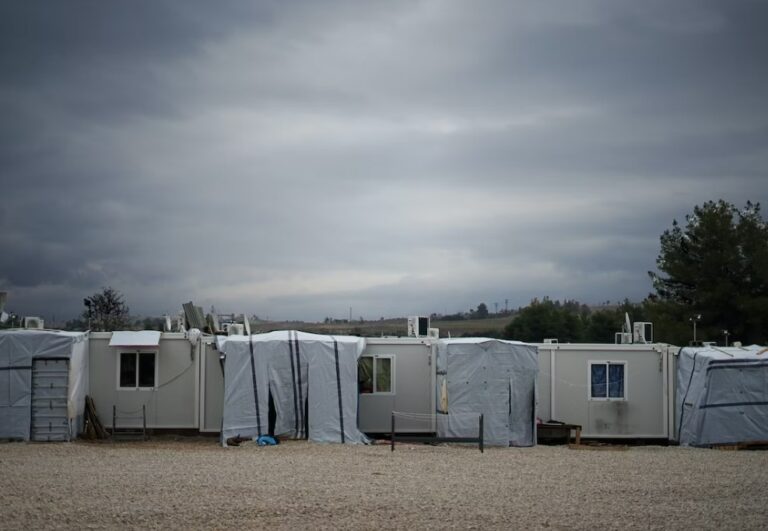Millions of people around the world are still fleeing their homes in search of safety in other countries, making the plight of these refugees an urgent humanitarian concern.
Those countries that are conveniently located, politically stable, or ready to help those in need have become magnets for migrants fleeing persecution and conflict.
In this article, we will delve into five countries that host the most refugees worldwide. Thus shedding light on their efforts to support and accommodate those in need.
Table of Contents
The 5 countries hosting more refugees worldwide
These are the countries currently hosting the biggest share of refugees worldwide:
1. Lebanon
Lebanon, a small country in the Middle East, has a long history of being a pioneer in offering safe haven to individuals who are in need.
A country of 6.8 million people in the middle of wars in Syria and neighboring regions, Lebanon has welcomed an estimated 1.2 million Syrian refugees during the past decade.
Lebanon has shown incredible strength in providing shelter and basic services to displaced populations despite economic and political obstacles. However, some refugees have tried to make the long and perilous journey onward to Europe from Lebanon due to the harsh living conditions there.
Lebanon, the country shouldering the heaviest burden in aiding refugees, urgently needs assistance from the international community.
2. Aruba
Aruba is a small island in the Caribbean, but its aid to refugees from South America, especially Venezuela, has been enormous. There are slightly more than 100,000 people living in the country. About 17,000 Venezuelans have fled to the country as a result of the situation there.
Because of its openness and willingness to work with international organizations, the country has become an important refuge for people escaping war and poverty. The humanitarian aid and support offered by Aruba to refugees is an inspiring example of how kindness can bridge cultural and linguistic divides.
More people had tried to reach Aruba but were ultimately sent packing. Since residents of Aruba can apply for and receive a Dutch passport, the governments of both the island and the Netherlands are concerned that an influx of refugees and migrants would occur if they do not implement rigorous asylum policies.
3. Curacao
An uptick in the number of people looking for asylum has also been observed on the island of Curacao, which is located in the Caribbean and is a part of the Kingdom of the Netherlands.
Curacao has struggled to meet the needs of refugees while also addressing local socio-economic issues due to the island’s convenient proximity to South America.
Nonetheless, the island continues to be dedicated to meeting the needs of displaced people by offering safe havens and collaborating closely with international organizations.
4. Nauru
Nauru, a small island nation in the Pacific, has become a problematic destination for refugees as a direct result of Australia’s unwillingness to accept any more of these persons.
Concerns have been raised concerning the facilities and treatment of refugees on Nauru, which shelters asylum seekers in detention camps as part of Australia’s offshore processing policy.
The United Nations High Commissioner for Refugees (UNHCR) has voiced grave concern over the appalling living conditions in which refugees are being held in Australia’s arrangement with Nauru and other countries. Refugee transfers to Nauru from Australia will terminate as of today.
The situation on Nauru exemplifies the difficulties governments have in responding to the worldwide refugee crisis and accommodating the flow of displaced people.
5. Jordan
Jordan, which is placed in Middle East, has opened its doors to refugees fleeing the battles that are taking place in the countries that are located in its immediate vicinity, Iraq and Syria.
Even though it has its own domestic issues, Jordan has received a large number of refugees, nearly a million in the previous ten years. The UN refugee agency oversees the operations of two refugee camps in Jordan that house 20% of the country’s displaced Syrians.
Although some have chosen to return to Syria or have been able to find new homes elsewhere, Jordan is still home to over 660,000 Syrian refugees. More than two million Palestinian refugees are currently living in Jordan. These are the Palestinians (and their descendants) who left their homes as a result of the Palestinian uprising of 1947–49 and the Six-Day War of 1967.
In the face of a terrible event, the nation’s efforts to ensure that refugees have access to education, healthcare, and basic utilities demonstrate the spirit of solidarity and humanity that pervades the country.
An offer of hope and inspiration to the world
Certain countries show compassion, perseverance, and a readiness to aid those in need. Yet they bear a disproportionate share of the weight of the global refugee crisis.
As a result of international collaboration and solidarity, countries like Lebanon, Aruba, Curacao, Nauru, and Jordan have stepped up to the plate as major actors in sheltering displaced people.
The world can take hope from the resolve shown by these countries to provide a safe haven for refugees, despite the fact that the future will bring its fair share of difficulties.
Read also: Global migration fluxes, the major and most critical routes in 2023












